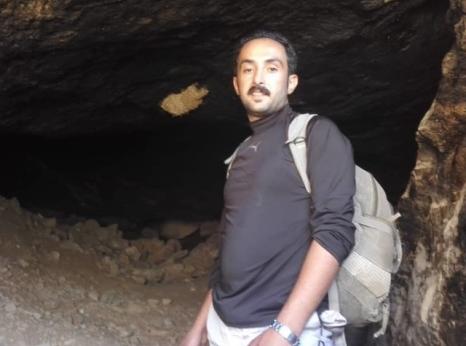Iran: Kurdish Dissident Forcibly Disappeared

On 27 July 2021, Iran’s Revolutionary Guards announced in a statement covered by state media outlets that they had “identified and destroyed … a terrorist team in the area of Boukan, which consisted of three individuals and was on a mission to carry out destructive and anti-security actions.” The statement added that two members of the team were killed and another was injured. On 6 August 2021, the Kurdistan Free Life Party (PJAK) issued a statement identifying the two men killed as Edris Feqhi and Mohsen Ghaderi.
Edris Feqhi’s family subsequently held a funeral for him without the body. According to a witness interviewed by Amnesty International, Ministry of Intelligence agents raided the funeral, interrogated several mourning relatives, and detained one for several days. In August 2021, Edris Feqhi’s family travelled from Sanandaj, Kurdistan province, where they live, to the village of Elm Abad and other nearby villages in West Azerbaijan province to obtain more information about the circumstances surrounding the reported killing of Edris Feqhi and Mohsen Ghaderi. They also approached several government offices and military bases in the area in search of Edris Feqhi’s body. During this process, they learned from several eyewitnesses that Mohsen Ghaderi survived the shooting and fled Iran, and that Edris Feqhi had been arrested, taken to Arefian hospital in Urumieh, West Azerbaijan province, and then moved to an unidentified location. At Arefian hospital, medical staff told the family that they were not allowed to provide any information. The family intensified their search after Kurdistan Human Rights Network( KHRN) reported in September 2021 that a former detainee had seen Edris Feqhi in a Revolutionary Guards detention centre in Almahdi barracks in Urumieh. They went to Almahdi military barracks several times to seek information but they were told by Revolutionary Guards agents that Edris Feqhi was not held in the barracks or advised to seek written authorization for a visit from the public relations office of the Intelligence Organization of the Revolutionary Guards known as No. 114 or Branch 6 of the Prosecutor’s Office, both in Urumieh. In November 2021, the family managed to secure a meeting with the lead investigator (bazpors) at Branch 6 of the Prosecutor’s Office. The official denied the confirmation given earlier in September 2021 about Edris Feqhi’s detention and said prosecution authorities have no information about him.
On 21 February 2022, Edris Feqhi’s relatives gathered peacefully in front of No. 114. Throughout the day, Revolutionary Guards agents gave them various contradictory accounts about the fate and whereabouts of Edris Feqhi. First, they took the phone number of the family and said they would call in an hour. Then they promised to provide the family with a death certificate. After several hours, they said providing a death certificate was not an option but they could show the family a picture of Edris Feqhi’s body. They added that Revolutionary Guards had shot Edris Feqhi dead and buried him in an unspecified location which they described as “la’nat abad” (a derogatory term meaning damned land in Persian, which has been used by the authorities since 1979 for remote grave sites where victims of politically-motivated executions are buried in unmarked individual or mass graves). Later in the afternoon, agents yet again changed their narrative saying they had no involvement with the case of Edris Feqhi and he had been killed during an armed confrontation between two Kurdish armed opposition groups. Distressed with these contradictory accounts, Edris Feqhi’s mother threatened to immolate herself. Revolutionary Guards agents then took her and Edris Feqhi’s brother inside No.114 and told them that after they shot Edris Feqhi dead, Mohsen Ghaderi carried away the body and buried it in an unidentified location. They then put Edris Feqhi’s mother and brother in a car and drove them to a nearby police station where they were put under pressure to sign a statement undertaking not to gather in front of No. 114 again. Other relatives who were standing outside No. 114 were also escorted to the police station and pressured to sign the same undertaking. In response to the continued insistence by Edris Feqhi’s relatives for information, a Revolutionary Guard agent approached the family at the police station and said outside of earshot of other agents that Edris Feqhi was detained in Almahdi barracks.
Amnesty International has learned that Edris Feqhi was a civil society and environmental activist in Kurdistan province for many years. A statement issued by the PJAK on 6 August 2021 suggests that, in the face of intensified attacks on civil society activists, Edris Feqhi decided to join the political wing of PJAK and move to its base in northern Iraq. PJAK has both armed and political wings. Those joining its political wing may carry arms, including when crossing into Iran for recruitment or political organizing purposes, but they are not tasked with waging armed attacks on state bodies. A local journalist who investigated the circumstances surrounding the shooting on 24 July 2021, including by speaking to local witnesses, told KHRN in August 2021 that Edris Feqhi and Mohsen Ghaderi were not armed at the time of the ambush. According to the journalist, the Revolutionary Guards identified the men after the individual with whom they were staying in Iran reported them. The right to freedom of expression includes the right to peacefully advocate for any political visions so long as the ideas espoused do not advocate hatred constituting incitement to discrimination, hatred or violence. The right to freedom of expression is protected under the International Covenant on Civil and Political Rights, which Iran has ratified.